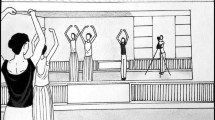Abstract
While the importance of ethnographic research for causal understanding is widely recognized, the logic of this argument has not been well articulated. The purpose of this paper is to specify the conditions under which direct field observations become essential for causal studies. It is argued in this paper that the concept of “human causation” is fundamental for understanding the causal relevance of ethnographic research. Specifically, ethnographic methods are most suited for observing conjunctures of action sequences in particular social settings. In causally fixed settings, ethnographers focus on the recurrent causal pathways leading to a predictable outcome; and in causally open settings, ethnographers study the critical junctures in and important conjunctures of contingent sequences of events that give rise to unpredictable outcomes. In both instances, the immersion of the researcher into the setting to observe the unfolding of the events being studied plays a key role in uncovering and understanding the underlying causal processes. The limitations of ethnographic methods for causal studies are also discussed in the paper.
Similar content being viewed by others
References
Abbott, A.: Sequences of social events: concepts and methods for the analysis of order in social processes. Hist. Methods 16(4), 129–147 (1983)
Abbott, A.: From causes to events: notes on narrative positivism. Sociol. Methods Res. 20(4), 428–455 (1992)
Abell, P.: The Syntax of Social Life: The Theory and Method of Comparative Narratives. Oxford University Press, Oxford (1987)
Abell, P.: Narrative explanation: an alternative to variable-centered explanation? Annu. Rev. Sociol. 30, 287–310 (2004)
Agar, M.H.: The Professional Stranger: An Informal Introduction to Ethnography. Academic Press, Orlando (1980)
Amizade, R.: Historical sociology and time. Sociol. Methods Res. 20(4), 456–480 (1992)
Bearman, P., Faris, R., Moody, J.: Blocking the future: new solutions for old problems in historical social science. Soc. Sci. Hist. 23(4), 501–533 (1999)
Bunge, M.: Causality and Modern Science. Dover, New York (1979)
Chisholm, R.M.: Person and Object. Open Court, La Salle (1976)
Goldstone, J.A.: Initial conditions, general laws, path dependence, and explanation in historical sociology. Am. J. Sociol. 104(3), 829–845 (1998)
Goodenough, W.H.: Description and Comparison in Cultural Anthropology. Aldine, Chicago (1970)
Griffin, L.J.: Temporality, events, and explanation in historical sociology: an introduction. Sociol. Methods Res. 20(4), 403–427 (1992)
Harre, R., Second, P.F.: The Explanation of Social Behavior. Basil Blackwell, Oxford (1972)
Harris, M.: History and significance of the emic/etic distinction. Annu. Rev. Anthropol. 5, 329–350 (1976)
Heise, D.R.: Modeling event structures. J. Math. Sociol. 16, 142–159 (1990)
Jorgensen, D.L.: Participant Observation: A Methodology for Human Studies. Sage, Newbury Park (1989)
Kasakoff, A.B.: Is there a place for anthropology in social science history? Soc. Sci. Hist. 23(4), 535–559 (1999)
Kim, J.: Philosophy of Mind. Westview Press, Boulder (1998)
Lareau, A.: Unequal Childhoods: Class, Race, and Family Life. University of California Press, Berkeley (2003)
Mahoney, J.: Path dependence in historical sociology. Theory Soc. 29, 507–548 (2000)
Powdermaker, H.: Stranger and Friend: The Way of an Anthropologist. W. W. Norton, New York (1966)
Ragin, C.C.: The Comparative Methods: Moving Beyond Qualitative and Quantitative Strategies. University of California Press, Berkeley (1987)
Redman, E.: The Dance of Legislation. University of Washington Press, Seattle and London ([1973] 2001)
Schelling, T.C.: Micromotives and Macrobehavior. W. E. Norton, New York (1978)
Searle, J.R.: Mind, Language, and Society. Basic Books, New York (1998)
Simmel, G.: In: Levine, D.N. (eds.) George Simmel on Individuality and Social Forms. The University of Chicago Press, Chicago (1973)
Taylor, R.: Action and purpose. Humanities Press, Highlands ([1966] 1973)
Von Wright, G.H.: Explanation and Understanding. Routledge and Kegan Paul, London (1971)
Yin, R.K.: Case study research: design and methods. Sage, Newbury Park (1989)
Author information
Authors and Affiliations
Corresponding author
Rights and permissions
About this article
Cite this article
Zhao, S. Ethnographic studies of social causation: observing conjunctures of action sequences in particular settings. Qual Quant 48, 2791–2800 (2014). https://doi.org/10.1007/s11135-013-9924-3
Published:
Issue Date:
DOI: https://doi.org/10.1007/s11135-013-9924-3




